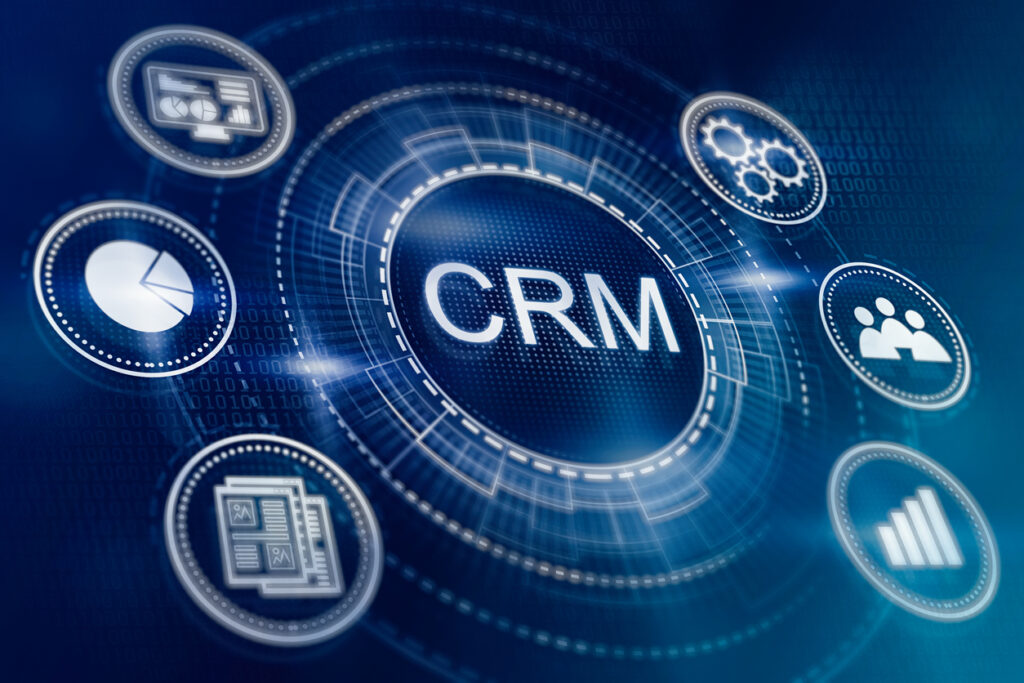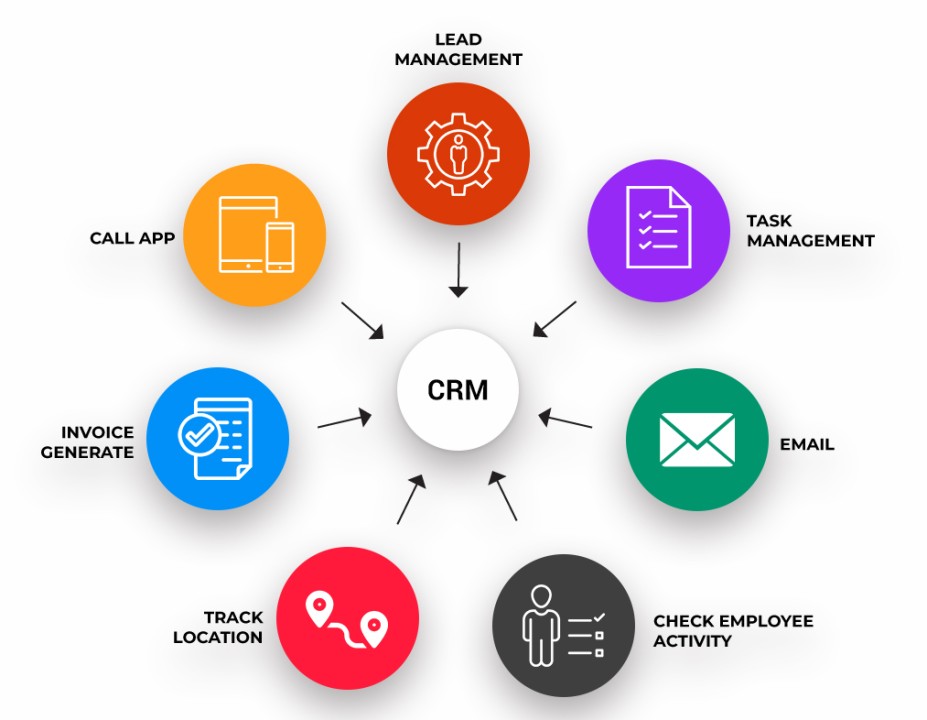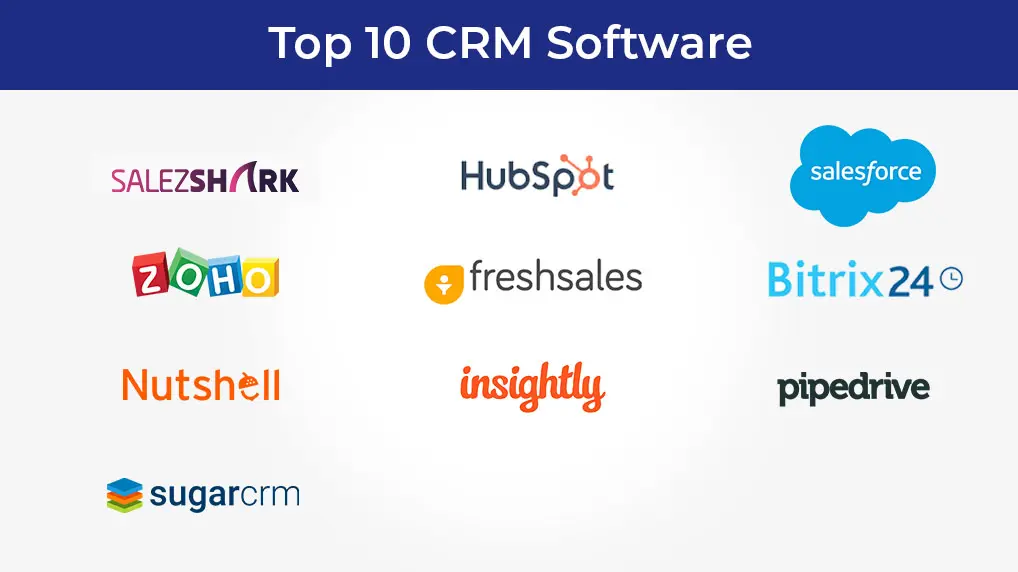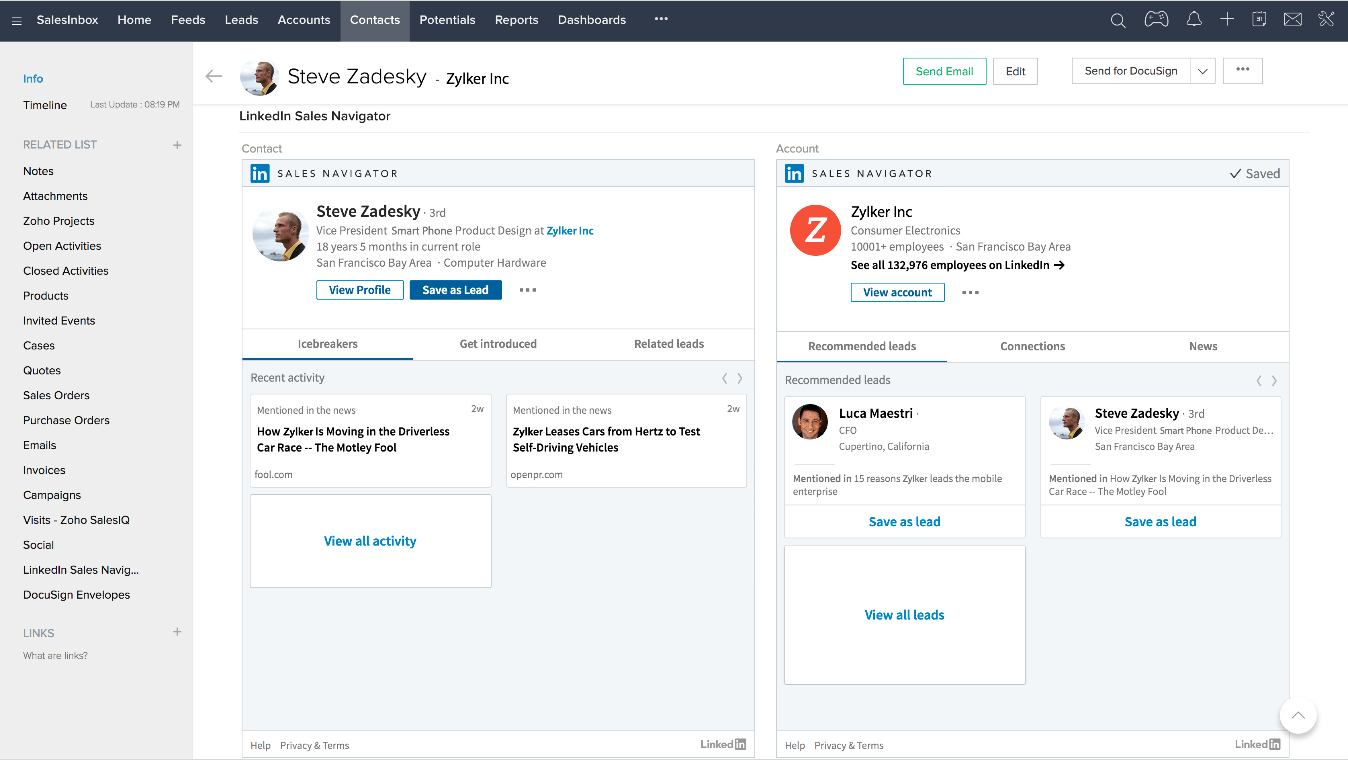
Unlocking Growth: The Ultimate Guide to CRM Marketing Solutions
In today’s fast-paced business environment, staying ahead of the curve requires more than just a great product or service. It demands a deep understanding of your customers and a strategic approach to nurture those relationships. This is where Customer Relationship Management (CRM) marketing solutions come into play. But what exactly are they, and how can they revolutionize your approach to marketing?
This comprehensive guide delves into the world of CRM marketing solutions, exploring their benefits, functionalities, and how you can leverage them to achieve sustainable growth. We’ll cover everything from the basics to advanced strategies, ensuring you have the knowledge to make informed decisions and implement effective CRM marketing campaigns. Get ready to unlock the potential of your customer data and transform your marketing efforts!
What are CRM Marketing Solutions?
At its core, a CRM marketing solution is a technology-driven approach to managing and analyzing customer interactions and data throughout the customer lifecycle. It’s a centralized hub where you store, organize, and access all customer-related information, providing a 360-degree view of each customer. This allows you to personalize your marketing efforts, improve customer engagement, and ultimately, drive sales.
Think of it as a digital command center for your customer relationships. Instead of relying on scattered spreadsheets, siloed data, and guesswork, a CRM system provides a unified platform where all customer interactions – from initial contact to post-purchase support – are tracked and analyzed. This gives you unparalleled insights into customer behavior, preferences, and needs.
Key Components of a CRM Marketing Solution
While specific features vary depending on the CRM platform, most solutions share common components:
- Contact Management: This is the foundation of any CRM. It allows you to store and manage customer contact information, including names, addresses, phone numbers, email addresses, and social media profiles.
- Lead Management: CRM systems help you track and nurture leads throughout the sales funnel. This includes capturing lead information, scoring leads based on their engagement, and automating follow-up actions.
- Sales Automation: Automate repetitive sales tasks, such as sending emails, scheduling meetings, and generating reports. This frees up your sales team to focus on building relationships and closing deals.
- Marketing Automation: Create and manage automated marketing campaigns, such as email marketing, social media campaigns, and personalized website experiences.
- Customer Service & Support: Provide excellent customer service by tracking customer inquiries, resolving issues, and managing support tickets.
- Analytics and Reporting: Gain valuable insights into your customer data and marketing performance through built-in analytics and reporting tools.
The Benefits of Implementing CRM Marketing Solutions
The advantages of using CRM marketing solutions are numerous and far-reaching. From boosting sales to improving customer satisfaction, a well-implemented CRM system can transform your business. Here are some of the key benefits:
Improved Customer Relationships
CRM systems enable you to build stronger relationships with your customers by providing a more personalized and relevant experience. By understanding their needs and preferences, you can tailor your interactions, offer targeted promotions, and provide exceptional customer service. This leads to increased customer loyalty and advocacy.
Increased Sales and Revenue
CRM systems help you identify and nurture leads, track sales opportunities, and close deals more effectively. By automating sales processes and providing your sales team with the information they need, you can improve sales productivity and increase revenue. You can also identify upsell and cross-sell opportunities to maximize the value of each customer.
Enhanced Marketing ROI
CRM systems allow you to segment your audience, personalize your marketing messages, and track the performance of your campaigns. This enables you to optimize your marketing efforts and achieve a higher return on investment (ROI). You can identify which campaigns are most effective, refine your targeting, and allocate your marketing budget more efficiently.
Improved Customer Service
CRM systems provide a centralized platform for managing customer inquiries, resolving issues, and providing support. This enables you to deliver faster, more efficient, and more personalized customer service, leading to increased customer satisfaction and loyalty.
Increased Efficiency and Productivity
By automating repetitive tasks and streamlining workflows, CRM systems can significantly improve the efficiency and productivity of your sales, marketing, and customer service teams. This frees up your employees to focus on more strategic initiatives and higher-value activities.
Better Data Insights and Decision-Making
CRM systems provide valuable insights into your customer data and marketing performance. By analyzing this data, you can make more informed decisions, identify trends, and optimize your business strategies. You can also track key performance indicators (KPIs) to measure the success of your efforts.
Key Features to Look for in a CRM Marketing Solution
Choosing the right CRM marketing solution is crucial for success. Here are some key features to consider when evaluating different platforms:
Contact Management
Ensure the CRM offers robust contact management capabilities, including the ability to store and manage detailed customer information, segment contacts based on various criteria, and track interactions. Look for features like:
- Customizable contact fields
- Contact segmentation
- Activity tracking
- Integration with other tools
Lead Management
Effective lead management is essential for converting leads into customers. Look for a CRM that offers features like:
- Lead capture forms
- Lead scoring
- Lead nurturing workflows
- Sales process automation
Sales Automation
Sales automation features can significantly improve sales productivity. Look for a CRM that offers:
- Automated email sequences
- Task management
- Meeting scheduling
- Sales reporting
Marketing Automation
Marketing automation is key to scaling your marketing efforts. Look for a CRM that offers:
- Email marketing
- Social media integration
- Landing page creation
- Marketing campaign analytics
Customer Service & Support
Exceptional customer service is crucial for customer retention. Look for a CRM that offers:
- Ticket management
- Knowledge base
- Live chat integration
- Customer feedback collection
Analytics and Reporting
Data-driven decision-making is essential for success. Look for a CRM that offers:
- Customizable dashboards
- Performance reports
- Data visualization tools
- Integration with other analytics platforms
Integrations
The ability to integrate with other tools is crucial for seamless workflows. Look for a CRM that offers integrations with:
- Email marketing platforms
- Social media platforms
- E-commerce platforms
- Accounting software
Implementing CRM Marketing Solutions: A Step-by-Step Guide
Implementing a CRM system requires careful planning and execution. Here’s a step-by-step guide to help you get started:
1. Define Your Goals and Objectives
Before you start looking at CRM systems, it’s essential to define your goals and objectives. What do you hope to achieve with a CRM? Are you looking to improve sales, increase customer satisfaction, or streamline your marketing efforts? Having clear goals will help you choose the right CRM and measure your success.
2. Assess Your Needs
Evaluate your current processes, workflows, and pain points. What are your biggest challenges? What features are essential for your business? Consider the needs of your sales, marketing, and customer service teams. This assessment will help you identify the key features you need in a CRM.
3. Choose the Right CRM Platform
Research different CRM platforms and compare their features, pricing, and integrations. Consider factors like:
- Scalability: Can the CRM grow with your business?
- Ease of Use: Is the platform user-friendly and easy to learn?
- Customization: Can the CRM be customized to meet your specific needs?
- Pricing: Is the pricing model affordable and transparent?
- Support: Does the vendor offer adequate support and training?
4. Plan Your Implementation
Develop a detailed implementation plan that outlines the steps you’ll take to migrate your data, configure the CRM, and train your employees. Assign roles and responsibilities, and set a timeline for completion.
5. Migrate Your Data
Migrate your existing customer data from your spreadsheets, databases, and other systems into the CRM. Ensure that your data is clean, accurate, and properly formatted. Consider using a data migration tool to automate the process.
6. Configure the CRM
Customize the CRM to meet your specific needs. Configure user roles, permissions, workflows, and integrations. Set up your sales process, marketing campaigns, and customer service processes.
7. Train Your Employees
Provide comprehensive training to your employees on how to use the CRM. Offer training sessions, online tutorials, and user manuals. Ensure that your employees understand the benefits of using the CRM and how it can help them do their jobs more effectively.
8. Launch and Monitor
Launch the CRM and monitor its performance. Track key metrics, such as sales, customer satisfaction, and marketing ROI. Make adjustments as needed to optimize your CRM implementation.
9. Ongoing Optimization
CRM implementation is an ongoing process. Continuously evaluate your CRM usage, identify areas for improvement, and make adjustments to your workflows and processes. Stay up-to-date on the latest CRM features and best practices.
Best Practices for CRM Marketing Success
To maximize the effectiveness of your CRM marketing solutions, consider these best practices:
Focus on Data Quality
The accuracy and completeness of your customer data are critical for CRM success. Regularly clean and update your data to ensure that it is accurate and up-to-date. Implement data validation rules to prevent errors.
Segment Your Audience
Segment your audience based on demographics, behavior, and preferences. This allows you to personalize your marketing messages and target your campaigns more effectively. Create customer personas to better understand your target audience.
Personalize Your Marketing Messages
Use customer data to personalize your marketing messages. Address customers by name, reference their past purchases, and tailor your content to their interests. Personalization increases engagement and conversions.
Automate Your Workflows
Automate repetitive tasks, such as sending emails, scheduling meetings, and generating reports. This frees up your team to focus on more strategic initiatives and improve their productivity.
Integrate Your Systems
Integrate your CRM with other systems, such as your email marketing platform, e-commerce platform, and social media platforms. This allows you to create a seamless customer experience and improve data sharing.
Track Your Results
Track the performance of your CRM marketing campaigns and measure your results. Analyze your data to identify what’s working and what’s not. Use this information to optimize your campaigns and improve your ROI.
Provide Excellent Customer Service
Use your CRM to provide excellent customer service. Respond to customer inquiries promptly, resolve issues efficiently, and provide personalized support. Excellent customer service leads to increased customer satisfaction and loyalty.
Continuously Learn and Adapt
Stay up-to-date on the latest CRM features and best practices. Continuously learn and adapt your CRM strategies to meet the changing needs of your customers and your business.
Choosing the Right CRM Marketing Solution: Considerations
Selecting the right CRM solution is a pivotal decision. Before making a choice, consider these key factors:
Business Size and Needs
Different CRM solutions cater to various business sizes and needs. Small businesses may opt for simpler, more affordable platforms, while larger enterprises might require more comprehensive and scalable solutions. Assess your current and future business requirements to determine the most appropriate fit.
Budget
CRM solutions come with varying pricing models, including monthly subscriptions, per-user fees, and upfront implementation costs. Set a realistic budget and compare the costs of different platforms, considering the features offered and the long-term value. Factor in the cost of training and ongoing support.
Scalability
Choose a CRM solution that can scale with your business as it grows. Ensure that the platform can accommodate increasing data volumes, user numbers, and evolving business processes. Consider whether the CRM offers add-on modules or integrations to expand its functionality.
User-Friendliness
A user-friendly CRM system is crucial for adoption and productivity. Select a platform with an intuitive interface and easy-to-use features. Prioritize platforms that offer comprehensive training and support to facilitate employee onboarding and maximize system utilization.
Integration Capabilities
The ability to integrate with other business systems is essential for streamlining workflows and data sharing. Choose a CRM solution that seamlessly integrates with your existing tools, such as email marketing platforms, e-commerce platforms, and accounting software. Consider the availability of APIs and custom integration options.
Mobile Accessibility
In today’s mobile world, accessing CRM data on the go is a significant advantage. Select a CRM solution with mobile apps or a responsive web design that allows your team to access customer information and manage tasks from anywhere. Ensure that the mobile experience is user-friendly and offers all the essential features.
Security and Data Privacy
Data security and privacy are paramount. Choose a CRM solution that complies with relevant data protection regulations, such as GDPR and CCPA. Look for features like data encryption, access controls, and regular security audits to protect your customer data. Ensure that the platform has a clear data privacy policy.
CRM Marketing Solutions: The Future
The landscape of CRM marketing solutions is constantly evolving, with new technologies and trends emerging regularly. Here are some key areas to watch:
Artificial Intelligence (AI) and Machine Learning (ML)
AI and ML are transforming CRM by enabling more personalized and predictive marketing. AI-powered CRM systems can analyze vast amounts of customer data to identify patterns, predict behavior, and automate tasks. This leads to more targeted campaigns, improved customer engagement, and increased sales.
Personalization
Personalization is becoming increasingly important in marketing. Customers expect personalized experiences, and CRM systems are essential for delivering them. CRM solutions are enabling marketers to tailor their messages, offers, and content to individual customer preferences, leading to higher engagement and conversions.
Omnichannel Marketing
Customers interact with businesses across multiple channels, including email, social media, live chat, and phone. Omnichannel marketing involves providing a seamless and consistent customer experience across all channels. CRM systems are essential for managing omnichannel marketing efforts by providing a unified view of the customer journey.
Data Privacy and Security
Data privacy and security are becoming increasingly important. Customers are concerned about how their data is used, and businesses must comply with data protection regulations. CRM systems must prioritize data security and provide features to protect customer data.
Integration and Automation
The ability to integrate with other systems and automate tasks is essential for CRM success. CRM systems are integrating with a growing number of platforms, including email marketing platforms, e-commerce platforms, and social media platforms. Automation is enabling businesses to streamline their workflows and improve their productivity.
Conclusion
CRM marketing solutions are no longer a luxury; they’re a necessity for businesses seeking sustainable growth. By implementing the right CRM system and following best practices, you can transform your customer relationships, increase sales, and improve your marketing ROI. Embrace the power of CRM, and unlock the potential of your customer data to drive success in today’s competitive market.



